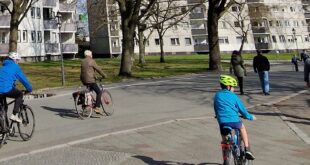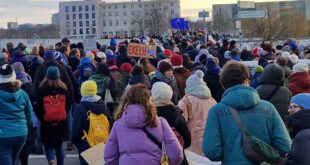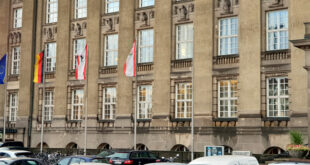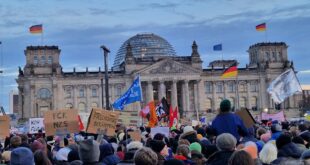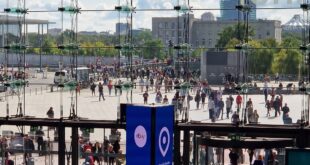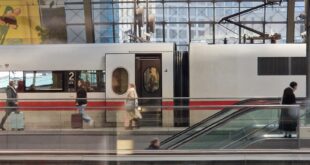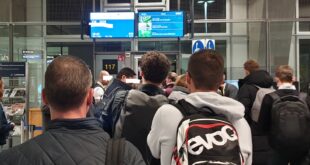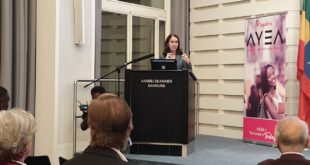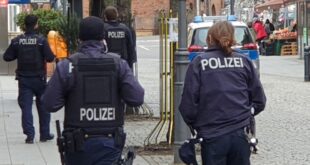The federal government says “emergency brake” measures to combat rising case numbers are to be legally mandated in all federal states, replacing a patchwork system. The change must now be passed by parliament.
On Tuesday, Cabinet members approved legal changes to grant the federal government more power to enforce coronavirus regulations in German states.
The changes to the German Infection Protection Act must now be passed in the parliament, the Bundestag.
If approved, the “federal emergency brake” would mean that any region in any state with a high incidence of COVID-19 cases would be legally required to implement a uniform set of rules set out by the federal government.
The government, led by Chancellor Angela Merkel’s Christian Democrats (CDU), wants to fast-track approval. However, the timeline for enacting the new regulations remains unclear.
“Let’s finish it this week,” Ralph Brinkhaus, CDU parliamentary leader, said in the German media on Monday.
What did Merkel say about the new rules?
“The situation is serious and we also have to take it seriously,” Merkel told a press conference Tuesday.
“The third wave of the pandemic has a tight grip” on Germany, Merkel said, adding that the current system of regulations decided between the federal government and states is not enough to to stop the third wave.
“We must not ignore the cries for help from the medical profession. They need us,” Merkel said. “Our fight against the pandemic needs to be stricter and more resolute,” she added.
“The nationwide emergency brake is long overdue,” said Merkel, while emphasizing that Germany is “approaching the light at the end of the tunnel.”
What are the rules?
Restrictions would be enforced in a district or city where the seven-day incidence rate of new COVID cases crosses 100 per 100,000 population for at least three consecutive days. When the incidence rate drops below this level for three consecutive days, the restrictions will be lifted.
Gatherings of people from different households will be limited. Contact with one person outside of the household is permitted, with a maximum of five people being allowed together.
Retail stores, including hardware stores, must close. Supermarkets and drug stores may remain open.
Theaters, museums, zoos, public pools and gyms must remain closed.
Restaurants are limited to takeout, and touristic travel in hotels is not allowed.
What about a nationwide curfew?
One of the more controversial measures is an overnight curfew to be enforced between 9 p.m. and 5 a.m. in cities and districts that cross the 100-cases threshold. Exceptions to this rule include medical emergencies and work.
There had been a heated debate among lawmakers on mandating curfews. Berlin’s social democrat mayor Michael Müller told the RBB broadcaster that although reducing contact is important, there is “little danger in taking a walk in the evening” alone or with another person.
Before Tuesday’s cabinet meeting, the head of the opposition and business-friendly Free Democrats (FDP), Christian Lindner, said he was against curfews.
Fellow FDP lawmaker Ullmann told DW that a curfew would not be necessary.
“We do not understand the rationale behind the curfew between 9 p.m. and 5 a.m. since most contacts do not take place at nighttime,” said Ullmann.
Ullmann, who serves as a health spokesman for his parliamentary group, urged people to stick with the measures which are already in place.
“Just keep your distance, wear your mask, do the testing on a regular basis, make sure that the the vaccine is working and everybody gets the vaccine at a quick pace,” said Ullmann.
What is the ’emergency brake’?
At the beginning of March, the federal government and Germany’s 16 federal states agreed that each state could reopen slowly in stages depending on the rate of new COVID infections.
In the event of case numbers rising above a certain threshold in a city or district, the plan was to stop spread of the virus by locally reinforcing lockdown measures such as closing shops and limiting gatherings.
However, as Germany has a federal system, each of the 16 states applied the rules as they saw fit.
This has resulted in a jumbled patchwork of regulations, with some states having more relaxed measures and others being stricter.
Differences between states have included issues such as reopening schools, what types of businesses may reopen, whether a curfew is in place or not, or testing requirements to shop at certain stores.
In many places, once restrictions were lifted, authorities were reluctant to backtrack on reopening, and then apply the emergency brake even if case numbers were rising.
wmr/aw (dpa, AFP, Reuters)/© DW
 THE AFRICAN COURIER. Reporting Africa and its Diaspora! The African Courier is an international magazine published in Germany to report on Africa and the Diaspora African experience. The first issue of the bimonthly magazine appeared on the newsstands on 15 February 1998. The African Courier is a communication forum for European-African political, economic and cultural exchanges, and a voice for Africa in Europe.
THE AFRICAN COURIER. Reporting Africa and its Diaspora! The African Courier is an international magazine published in Germany to report on Africa and the Diaspora African experience. The first issue of the bimonthly magazine appeared on the newsstands on 15 February 1998. The African Courier is a communication forum for European-African political, economic and cultural exchanges, and a voice for Africa in Europe.














